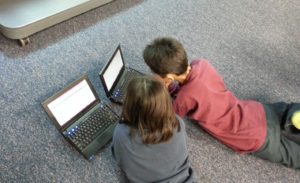 [Philip Lelyveld comment - these appear to all be 3D stereography-related problems that are no different from test results from 3D movie studies. They do not appear to be unique to VR and AR.]
[Philip Lelyveld comment - these appear to all be 3D stereography-related problems that are no different from test results from 3D movie studies. They do not appear to be unique to VR and AR.]
As covered by The Guardian, researchers at Leeds University have performed a study on twenty children aged between 8 and 12. These children were tasked with playing a virtual reality game for 20 minutes, after which they were physically examined for signs of problems with eyesight, nausea and so on. The results indicated a short-term disruption in “stereo-acuity”, which describes the ability to perceive depth. At least one child also suffered a brief case of dizziness/vertigo in the aftermath.
See the full story here: https://vrworld.com/2017/10/28/vr-safe-children-leeds-university-warns/